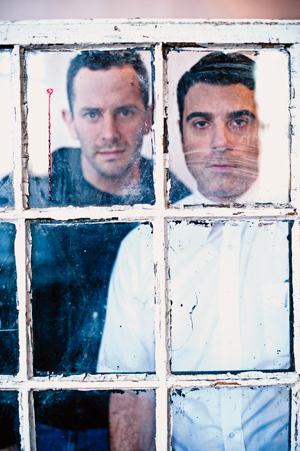Break out your red noses and slip on your big floppy shoes: the Toronto Festival of Clowns (TFC) has returned with frivolity, tragedy and delights for all ages.
It truly is the little festival that could, given its modest start just seven years ago. But under the guidance of founders Adam Lazarus and Dave McKay, TFC has emerged as an international showcase of the myriad disciplines that make up the clown genre.
Sure, there are plenty of the classic goofy antics that make kids cheer and the young at heart smile, but Lazarus, McKay and their gang wisely incorporate elements that give the art form its daring and poignant edge. Bouffon, the dark and gritty side of clowning, figures largely in this year’s festival, with works by such renowned artists as clown master Philippe Gaulier.
Also presenting this year are two of Lazarus’s former students from the National Theatre School of Canada, Phil Luzi and Stephen Jackman-Torkoff. Their pieces are directed by Lazarus in true bouffon style, incorporating elements of comedy, pathos and horror into a mélange that promises to be both challenging and highly entertaining.
Jackman-Torkoff’s piece, Baby, introduces the audience to an endearing misanthrope eager to be loved. “It’s the first show I ever wrote,” he says. “So it’s basically about me and my life, just bigger, louder and more vulgar.”
Like his creator, Baby is black, gay and adopted. “I was really nervous when I first performed it,” Jackman-Torkoff says. “Even my parents were really awkward after seeing it. But afterwards my mom was like, ‘Is it about me? No? Oh, well you’re very talented!’”
Performing bouffon is often a risky venture, as it requires the clown to present less-than-lovable characteristics to the audience. But it’s the nature of the art form to provoke even as it entertains, dancing the fine line between offensive and funny.
“Sometimes there’s that awkward laughter, where people are wondering if it’s okay to think something is funny,” Jackman-Torkoff says. “But then again, I like that awkwardness.”
By highlighting bouffon and bringing in a major player such as Gaulier from Paris, Lazarus and McKay are reminding us of the more subversive elements and politics of clown performance.
Like the fool tweaking the king’s nose, bouffon speaks truth to power, holding up a mirror to ourselves and others and forcing us to look at the uglier side of society. It’s compelling theatre that can be as hilarious as it is disturbing.
It also occasionally masquerades as something else. One need only look at Toronto’s brilliantly eccentric writer/performer Keith Cole to see the bouffon ethic of unfiltered social commentary and a joyous lampooning of society’s foibles.
“Keith is absolutely bouffon,” Lazarus says. “He is so funny and so audacious, and he makes you question what art is. He’s so balls-out. Literally.”
And while bouffon enjoys a heightened profile at this year’s festival, Lazarus promises a wide variety of diversions for crowds of all ages. “We have vaudeville acts, music, comedy, cabaret and even some mime stuff,” he says. “But not irritating mime stuff.”

 Why you can trust Xtra
Why you can trust Xtra


